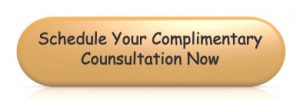More Time Off Equals Getting More Done
“More, bigger, faster.”
That’s a slogan many of us live by on a daily basis. We only have an 8-hour work day and it’s filled with deadlines, emails, meetings, and demands. Americans have a tendency to believe that if we stress ourselves out and work long hours, we will get more done. Because more work equals putting in more time, which means getting more done, right? But does putting in more time really mean we’re more productive?
With so much going on at work, it’s hard not to invite that into our daily lives, which affects who we are, our nerves, and our sleep. When work demands stress you out, it takes its toll on your sleep, your ability to have patience, and makes your time with your loved ones miserable. Who wants to hang around a stressed-out, cranky person?
How can someone get more done while maintaining a life outside of work – all at the same time? Simple: Take more time off, get plenty of sleep and allow yourself to take regular breaks.
You might think to yourself, “But taking time off means I won’t be getting things done at work!” Not necessarily. When you take time off, you are renewing yourself and your body. When you pull a long week, you have just overextended your energy and that energy needs to be restored. The only way to do that is by taking a break. Here are some tips on how to get more done by putting in less time.
More Sleep
You have heard this before and you will hear it again: more sleep helps with renewal of the body, as well as productivity. According to Tony Schwartz, in a recent study of nearly 400 employees, researchers found that sleeping too little — defined as less than six hours each night — was one of the best predictors of on-the-job burnout. And a recent Harvard study estimated that sleep deprivation costs American companies $63.2 billion a year in lost productivity.
Even having a designated nap time can be crucial to your productivity and memory. A 20-minute nap can mean more alertness and creativity. Longer naps, between 60-90 minutes, yield even better results as they improve memory much like getting 8 hours of sleep would, according to Sara Mednick, a sleep researcher at the University of California.
How much sleep are you getting and how much is it costing you and your work?
[wpob id=”2″]More Vacation Time
Yes, more vacation time can have positive benefits for your body, mind and productivity, while offering the added benefit of getting to spend more time with your loved ones as a bonus. But don’t assume vacations have to be a week long (or longer) to reap those positive benefits. A quick weekend getaway, to breathe fresher air and rejuvenate yourself for the next work week, can also be beneficial. A survey done by Harris Interactive found that Americans left, on average, 9.2 vacation days unused in 2012. What do you think those numbers would look like today?
A study conducted by Ernst & Young surveyed their employees and “found that for each additional 10 hours of vacation employees took, their year-end performance ratings from supervisors (on a scale of one to five) improved by 8 percent.” They also found that employees who took regular vacations stayed at the firm longer.
Are you leaving vacation days unused? If you are, you should be planning your next vacation!
Work in 90-Minute Intervals
Another great tip, after getting enough sleep and leaving no vacation time unused, is to work in 90-minute intervals. Every 90 minutes, our body tells us to take a break from what we’re doing because it’s getting tired. How often do you think the average American listens to this signal? This is one reason why we turn to coffee, sugar, and other emergency energy-boosters that can actually increase our stress level.
When we give our body and mind a rest from the grind, we encourage ideas to come to us when we least expect them to. We also encourage a time of renewal and relaxation. Some practical ways to incorporate this time of renewal into your work day would be: taking a run, walking around your building a few times, meeting up with a friend for coffee or tea, meditating, stretching, or picking up an exercise class in this time period. You will need to find something that works for you and your company so you can have some “me” quality time.
Tony Schwartz has stated that when he started to work in 90-minute intervals, he saw big results. When writing his first book, he wrote 10 hours a day and got it done in one year. But when he followed the 90-minute interval program, he worked less hours (between 4-5 hours) and was able to get his book done in six months. When he took these breaks, his mind was able to be more creative and give him more ideas for his books. Now Google, Coca-Cola, Green Mountain Coffee, the Los Angeles Police Department, Cleveland Clinic and Genentech all follow his practice for times of renewal during the work day.
Start putting these simple tips into practice and get more done with less time. It’s time to start renewing and stop stressing. For more productivity ideas and ways to cut out stress, email Cathy at cathy@theproductivityexperts.com.



Trackbacks/Pingbacks